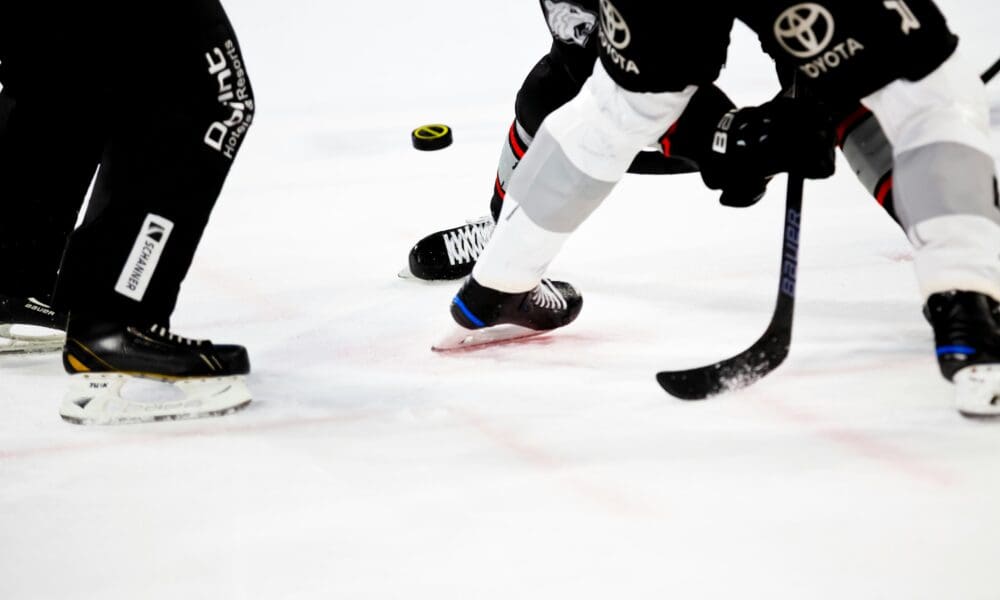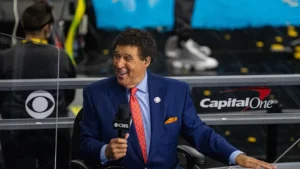It seems Britain can’t get things right when it comes to sports. If you’ve been following England or Scotland in the UEFA Euros, you’ll know what we mean.
But the Euros is another story (that the entire nation is glued to), and the IIHF left just as much to discuss. Why? The recent poor performance, a 5-2 loss against Norway, resulted in a gut-wrenching relegation from the top division. But was it deserved?
Read on to find out.
Early Struggles and Defensive Issues
It wasn’t just the Norway game in which Great Britain underperformed, it was every game. As a result, going into the game with Norway, Great Britain sat winless at the bottom of Group A. The live fixtures never looked in GB’s favour. Great Britain has never won the IIHF, and they haven’t been in the top 10 since 1962. Sadly, the unfavourable statistics go on. But what about the Norway game specifically?
The issue was their defensive play. The team conceded three quick goals within the first period, which is never good for morale – teams often crumble after the first goal, let alone three in quick succession.
Norway capitalised on Britain’s defensive lapses with goals from Markus Vikingstad, Patrick Thoresen and Eskild Olsen Bakke. And, unfortunately for Great Britain, it was only downhill from there.
Offensive Challenges Without Key Players
Great Britain were missing some key players, like Liam Kirk. Were they ever going to survive without him? He’d been battling an illness throughout the end of the tournament, being absent for most games. Losing a key player like that is difficult for any team.
His limited participation – he was out by the middle frame – in the game against Norway left a noticeable void in Britain’s offensive lineup. Without Kirk’s incredible talent, the team struggled to generate scoring opportunities and maintain offensive pressure.
Yes, Brett Perlini and Ollie Betteridge managed to score, but without Kirk, it wasn’t enough to match Norway’s attack and compensate for their own defensive lapses. And maybe that’s Great Britain’s problem, they rely too often on one or two key players to carry the team.
Tactical and Strategic Missteps
Great Britain’s tactical approach was also lacking, and was one of their many issues. Much like with the football squad, it seems the strategic decisions of the coaches and players simply aren’t working.
Head coach Pete Russell acknowledged the tournament’s difficulty after the match – but this perspective didn’t help them find solutions in-game.
The team’s inability to adapt to the fast-paced and aggressive playstyle of most teams they came up against was evident when you look at the fact they were winless across the tournament.
Misjudged clearances like Robert Lachowicz’s mistake that resulted in Thoresen’s goal and ineffective penalty kills are only some of the tactical frailties that plagued the GB team.
Areas for Improvement
Where do we start?
Yes, the disappointment of relegation is never good, but if we can find one positive thing to talk about, it’s that there are some lessons to learn.
Strengthening their defensive strategies, improving the depth of their offensive lineup and finding their feet with tactical adaptability are some of the things we’d like to see in order for Great Britain to be competitive in the top division again.
Investing in player development is also up there with as one of the most essential things the team can do. Not that they could help Kirks’s sickness.
Great Britain’s performance at the IIHF World Championship was not one to remember. It’s so sad to see a team with so much potential perform like that. Do you think they’ll be back in the top division again soon?







